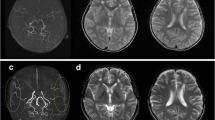Abstract
Background
When superficial temporal artery-middle cerebral artery bypass is combined with indirect methods (e.g., revascularization surgery) to treat Moyamoya disease (MMD), antiplatelet treatment can impact bypass patency, infarction, or hemorrhage complications. Recently, heparin has been proposed as an anticoagulant treatment against white thrombus at the anastomosis site. The study aims to evaluate the effect of aspirin on the perioperative outcomes and investigate the results of heparin treatment for white thrombus.
Methods
This retrospective study included 74 procedures of combined revascularization surgery for MMD patients who either received or did not receive aspirin. Perioperative outcomes were compared between the two groups. In addition, the effects of heparin treatment for white thrombus were evaluated.
Results
The rate of white thrombus at the anastomosis site was significantly higher in the non-aspirin medication group (univariate: p = 0.032, multivariate: p = 0.044) and, accordingly, initial bypass patency was lower in the non-aspirin medication group (p = 0.049). Of the 17 patients with white thrombus development, five received heparin injections, and all white thrombi disappeared; however, there was one case of epidural hematoma and another of subdural hematoma. The risk of hemorrhagic complications was significantly higher in the surgical procedures that received heparin injections (p = 0.021).
Conclusions
In MMD patients who received combined revascularization surgery, aspirin medication lowered the occurrence of white thrombus. Heparin injections help to treat white thrombus but can enhance the risk of hemorrhagic complications.



Similar content being viewed by others
Abbreviations
- CT:
-
Computed tomography
- ICH:
-
Intracranial hemorrhage
- MCA:
-
Middle cerebral artery
- MMD:
-
Moyamoya disease
- MRA:
-
Magnetic resonance angiography
- MRI:
-
Magnetic resonance imaging
- PCA:
-
Posterior cerebral artery
- SD:
-
Standard deviation
- STA:
-
Superficial temporal artery
- TIA:
-
Transient ischemic attack
References
Furie B, Furie BC (2008) Mechanisms of thrombus formation. N Engl J Med 359(9):938–949
Golby AJ, Marks MP, Thompson RC, Steinberg GK (1999) Direct and combined revascularization in pediatric moyamoya disease. Neurosurgery 45(1):50–60
Gozdek M, Pawliszak W, Hagner W, Zalewski P, Kowalewski J, Paparella D, Carrel T, Anisimowicz L, Kowalewski M (2017) Systematic review and meta-analysis of randomized controlled trials assessing safety and efficacy of posterior pericardial drainage in patients undergoing heart surgery. J Thorac Cardiovasc Surg 153(4):865-875.e12
Houkin K, Nakayama N, Kuroda S, Nonaka T, Shonai T, Yoshimoto T (2005) Novel magnetic resonance angiography stage grading for Moyamoya disease. Cerebrovasc Dis 20(5):347–354
Houlind K, Fenger-Grøn M, Holme SJ et al (2014) Graft patency after off-pump coronary artery bypass surgery is inferior even with identical heparinization protocols: results from the Danish On-pump Versus Off-pump Randomization Study (DOORS). J Thorac Cardiovasc Surg 148(5):1812-1819.e2
Kuroda S, Houkin K (2008) Moyamoya disease: current concepts and future perspectives. Lancet Neurol 7(11):1056–1066
Martorell L, Martínez-González J, Rodríguez C, Gentile M, Calvayrac O, Badimon L (2008) Thrombin and protease-activated receptors (PARs) in atherothrombosis. Thromb Haemost 99(2):305–315
Mikami T, Suzuki H, Ukai R, Komatsu K, Akiyama Y, Wanibuchi M, Houkin K, Mikuni N (2019) Predictive factors for acute thrombogenesis occurring immediately after bypass procedure for moyamoya disease. Neurosurg Rev:609–617
Miyamoto S, Yoshimoto T, Hashimoto N et al (2014) Effects of extracranial-intracranial bypass for patients with hemorrhagic moyamoya disease: results of the Japan adult moyamoya trial. Stroke 45(5):1415–1421
Miyoshi K, Chida K, Kobayashi M, Kubo Y, Yoshida K, Terasaki K, Ogasawara K (2019) Two-year clinical, cerebral hemodynamic, and cognitive outcomes of adult patients undergoing medication alone for symptomatically ischemic Moyamoya disease without cerebral misery perfusion: a prospective cohort study. Clin Neurosurg 84(6):1233–1241
Onozuka D, Hagihara A, Nishimura K et al (2016) Prehospital antiplatelet use and functional status on admission of patients with non-haemorrhagic moyamoya disease: a nationwide retrospective cohort study ( J-ASPECT study). BMJ Open. https://doi.org/10.1136/bmjopen-2015-009942
Paparella D, Semeraro F, Scrascia G, Galeone A, Ammollo CT, Kounakis G, de Luca Tupputi Schinosa L, Semeraro N, Colucci M (2010) Coagulation-fibrinolysis changes during off-pump bypass: effect of two heparin doses. Ann Thorac Surg 89(2):421–427
Rashad S, Fujimura M, Niizuma K, Endo H, Tominaga T (2016) Long-term follow-up of pediatric moyamoya disease treated by combined direct–indirect revascularization surgery: single institute experience with surgical and perioperative management. Neurosurg Rev 39(4):615–623
Research Committee on the Pathology and Treatment of Spontaneous Occlusion of the Circle of Willis (2012) Guidelines for diagnosis and treatment of Moyamoya disease (spontaneous occlusion of the circle of willis). Neurol Med Chir (Tokyo) 52(5):245–266
Roberts N, Boehm M, Bates M, Braidley PC, Cooper GJ, Spyt TJ (2006) Two-center prospective randomized controlled trial of Blake versus Portex drains after cardiac surgery. J Thorac Cardiovasc Surg 132(5):1042–1046
Zhao Y, Zhang Q, Zhang D, Zhao Y (2017) Effect of aspirin in postoperative management of adult ischemic Moyamoya disease. World Neurosurg 105:728–731
Author information
Authors and Affiliations
Contributions
Conceptualization: Fumiaki Kanamori, Yoshio Araki. Methodology: Fumiaki Kanamori, Kinya Yokoyama. Formal analysis and investigation: Fumiaki Kanamori, Kenji Uda, Takashi Mamiya, Masahiro Hishihori, Takashi Izumi. Writing—original draft preparation: Fumiaki Kanamori; Supervision: Sho Okamoro, Atsushi Natsume.
Corresponding author
Ethics declarations
Conflict of interest
The authors declare that they have no conflict of interest.
Ethics approval
This study was performed in line with the principles of the Declaration of Helsinki. Approval was granted by the Institutional Review Board of the Nagoya University Graduate School of Medicine (No. 2016-0327).
Consent to participate/publish
Informed consent was obtained from all study participants or their legal guardians.
The participants provided informed consent regarding publishing their data and photographs.
Additional information
Publisher’s note
Springer Nature remains neutral with regard to jurisdictional claims in published maps and institutional affiliations.
This article is part of the Topical Collection on Vascular Neurosurgery - Other
Rights and permissions
About this article
Cite this article
Kanamori, F., Araki, Y., Yokoyama, K. et al. Effects of aspirin and heparin treatment on perioperative outcomes in patients with Moyamoya disease. Acta Neurochir 163, 1485–1491 (2021). https://doi.org/10.1007/s00701-020-04668-0
Received:
Accepted:
Published:
Issue Date:
DOI: https://doi.org/10.1007/s00701-020-04668-0




